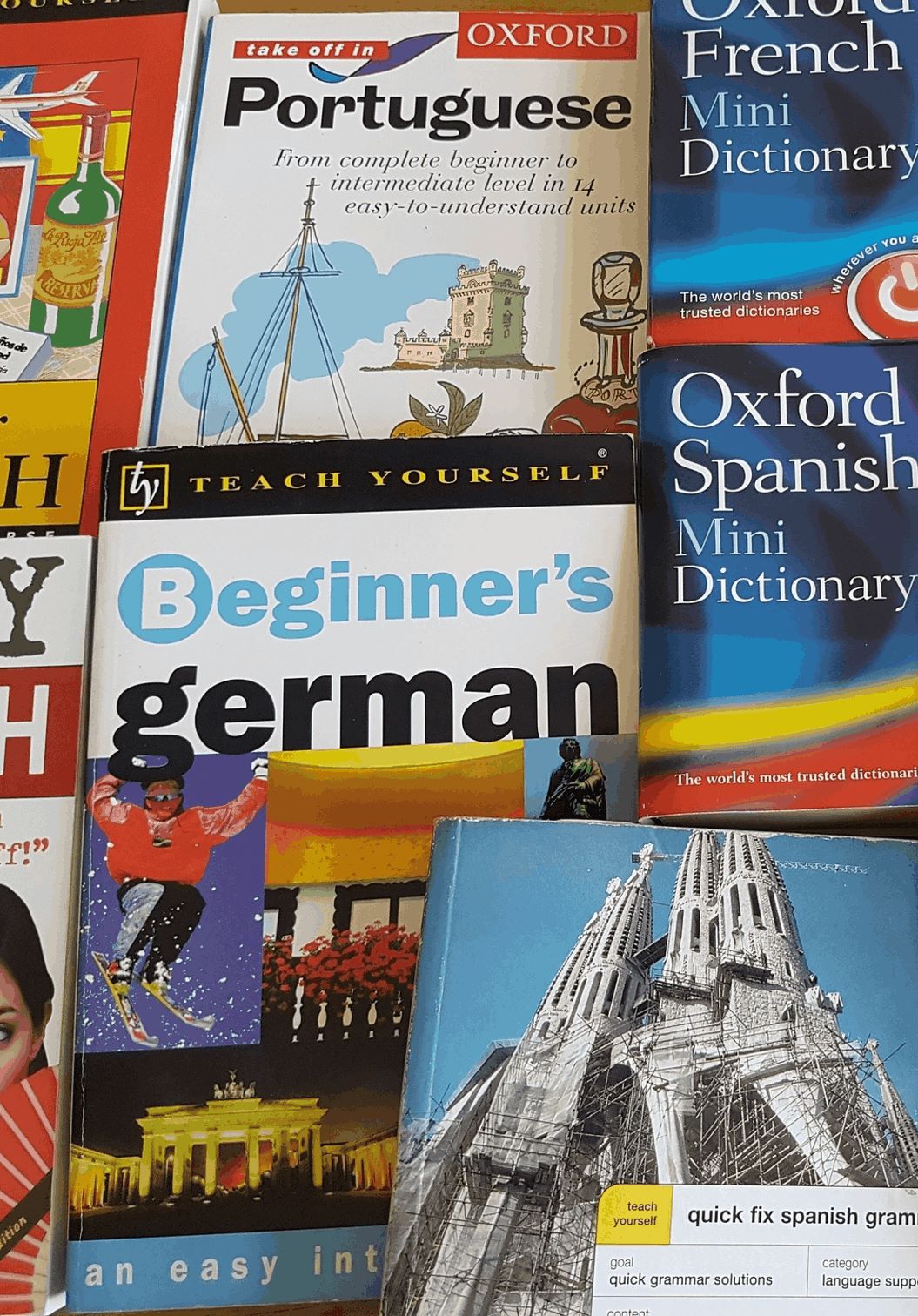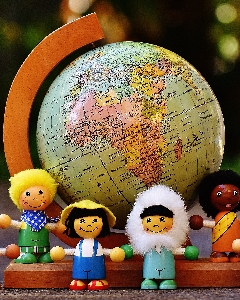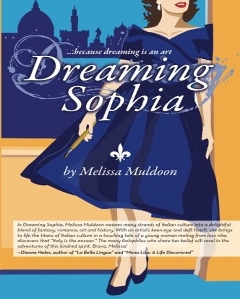|
What is your favorite language? Which language do you dislike? What language interests you? Which language irritates you? As you read those questions, I am guessing you had an answer to each one almost instantly. Even if you would like to diplomatically say something like "I love them all", we can not help but place some higher than others in our spectrum of affection. That is because we rarely view a language as a single entity. With the exception of most conlangs, a language is bound up with a culture and at least one country. When I say "Italian", your mind is bound to think of the food, the art, and the views of Italy. When I say "Japanese", your mind probably conjures up visions of kimonos, anime, and torii gates. When we have languages tied to other aspects of society or our views of the world, then we often form opinions on the language itself, rather than those other factors. We can look at a few of those here. Stereotypes  When I talked about Italian and Japanese above, I referred to stereotypes about the countries. Until we have been to another country or met someone from there, those ideas are often all we have, and by association, we judge the language. If you love pizza and spaghetti, you might then think Italian is a language you would like to try. Some people have told me they learned Japanese because they like anime. A person may not have even ever heard a language before making a decision about their feelings towards it. It may sound odd, but I have actually heard several people announce they intend to learn a language because of the country's cuisine. This can also cause an aversion if you dislike some aspects. Perhaps you do not like sauerkraut or haggis (even if you have never tried them) and thus are turned off by German and Scottish. Or you might have seen a French movie you really hated and now the whole language makes you ill. In this case, your perception is based solely upon ideas, false or true, related to the language but not really the fault of the language. This connection may not be entirely without merit. Cultures and languages are linked, so if you do not like one, you may not like the other. As an example, I do not like French. I do not like the sound of it, the look of it, or the grammar set up. For this reason, I am also wary of French people, France, and the culture. In this case, my connecting the two is a bit schizo, since some of my favourite films, like L'auberge Espagnole, are French. I cannot explain it. Political  Who does your government have good relations with? What country has been deemed a political enemy? These choices can shape our language perception because we tend to go along with what our government tells us. During a war, your government will usually do everything in its power to demonize the enemy. During WWII, we were taught how evil the Germans are, that they were monsters that would come and get us. During the cold war, it was the Russians who were the cold-hearted opponents whom we had to protect ourselves from. A single cry of "Communist!" was enough to make grown men fearful. To many, even the British are the oppressive overlords from 200 years ago. This is why in most American movies, the villains are either British, German, or Russian. It is also why many people are exposed to and have feelings about Russian and German. I usually hear people describe them as being harsh or angry sounding, while they may not feel that way about other Germanic or Slavic languages. Bad people equal bad language. The most obvious examples at this time in our history are Arabic, Farsi, and a few other middle-eastern languages. With so much terrorism happening around the world, much of it being attributed to Islamic extremist, we have developed a fear of those languages themselves. There have been cases of people panicking just when they hear a few words of one, or even of what they think is one. Given that far too many people do not know one language from another, there have been cases of people freaking out after hearing Hindi or even Portuguese. Sadly, this has also made some people wary of attempting to learn those languages, since the police might believe you are doing it with criminal intent. Personal Experiences In this case, your perception is based solely upon ideas, false or true, related to the language but not really the fault of the language. Perhaps the strongest influence on how we view a language is our personal experiences with the people who speak it. We are wanting to learn it (or avoid it) because of the way we were treated by someone or in a certain situation. It could be anything from having to spend several hours once on a bus listening to a Japanese pop music CD played over and over to meeting an attractive Mexican woman and wanting to impress her. I find myself definitely guilty of this one, I am ashamed to say. I started learning Italian before a trip there when I was a teen. After meeting an Italian woman, whom I started interacting with over long distance (using airmail, just so you know how dedicated I was), I was definitely studying it. Then after a serious relationship and a very bad break-up, I dropped Italian completely and wanted nothing more to do with it or Italy. All based on a woman, not the language or country even. Since then, I have rekindled my love for both and managed to put the bad relationship behind me instead. Irish is another language which I liked more after meeting a group of Irish students in my university who had come to study for half a year. I loved their accents, even though only a few of them could even speak Irish. I do love it for its actual sound, but my personal experience with those Irish people made me love it more. It is not hard at all to form an opinion about a language from even the smallest experience. Maybe your childhood friend had a grandmother who loved to give you treats and speak Polish. Perhaps a German Shephard scared you as a child and since then you hate everything German. It is possible you saw Shakira dancing and decided you wanted to speak Spanish. Because of the nature of these, you might never even realize what the connection is that makes you feel a certain way toward a language. All you know is that you do. Sounds  The way a language plays in your ear is, in my view, the most common reason for people to like or dislike a language. Without knowing anything of the culture, people, or country, the sound of the words can make you love or hate a language. I think the first language I really fell in love with is Russian. Despite the cold war, I did not think it sounded too harsh. I felt it had a strong and melodic feel to it, very earthy. You could hear the strength of the people, born down under hardships for centuries, with every word. Yet it also has a lilt, revealing the strength of character of the citizens. It was those sounds that pushed me to learn the Russian Cyrillic alphabet, to study Russian history at my University, and even try to visit the USSR with other students and a professor. Sadly, the USSR collapsed before we could get enough people to travel there, so my dreams of visiting the land of Peter the Great has yet to be realized. As I said before, in comparison, French sounds almost lazy to me as it drops the sounds from the ends of words. It has a quality which sounds snobbish to my ears. Now, those are the way I hear those two languages, but I know many people find Russian harsh and French to be lyrical, so it is very much a matter of opinion, the same way we all have favorite kinds of music. And even in music, the sound of the language can change. I have recordings of traditional Japanese songs in which the parts sung by a woman is very sweet and lyrical while those sections sung my a man are very harsh and offensive to my ear. I think they are written that way, not that the gender singing it really has control over the tone. Media  Wasn't that a fantastic Norwegian film with the warriors on skis? Didn't your heart break over the lives of those three brothers in that Hindi movie? Don't you want to be just like the heroine in that Anime? Our media, whether it is our films, television, music, or even books, can always make us want to learn a language or at least develop an idea about it. People learn Japanese to watch Anime in its original Japanese. Some people are drawn to Hindi or Tamil after watching a film from India for the same reason. In these cases, it might be the language which draws them, but it is usually more to the culture portrayed by or surrounding the media. We trust the media to be an insight into the culture, and thus we want to use the language to get closer to it. Over the years, I have seen countless individuals announce that they just saw a certain movie or heard a specific song and now want to learn the language it is in. I have also noticed that it is usually when the media is uplifting. I cannot remember a time when someone said something like "Wow. That Chinese movie was really depressing. Now I want to learn Chinese." Something I noticed I did myself was develop a reaction for Polish based entirely upon a series of books. Stanisław Lem was a Polish science fiction writer whose books also contained a great deal of satire and philosophy. I read a few of his books as a teen in their English translations and while I liked them, they were puzzling and even at times, disturbing. Upon those, I mentally extrapolated that all Poland must be like that, including the language, even though I had not read or heard a word of it. Fortunately, this idea of Polish was replaced with another when I met a very attractive Polish woman in my University during a class. Now my idea of Polish is still not based upon the language, but it is at least more pleasant. Media can be a very tricky thing, however, since so much of it is projected, not reality. Based on what I know of Indian cinema, most people there are either trying to get out of arranged marriages or involved in drug lord battles. The Chinese ones tell me that everyone is a martial arts master who can fly through the air. Someone watching American films would probably figure that we either spend most of our time having sex with everyone around us or are constantly blowing things up. Well, maybe there is some truth to that one. Changing Views Going back to the original questions I asked at the start of this article, can you now identify the possible reasons you feel the way you do about the answers you gave? Even knowing possible reasons, it may be difficult, because life is subtle. One thing I would like to know is if we can, in fact, identify why we have specific perceptions about languages, can we change them? I know I no longer consider German to be such a harsh language because I have met several Germans and most have been the kindest of people. I have also managed to mostly overcome my issues with Italian. But could a nasty encounter with a Russian or a romantic interaction with a French woman alter my opinions? I listed five possible reasons for the language views we have, but I am sure there are other factors. I would love to hear your own thoughts and stories on them!
|
| Language Perceptions | |||
| Writer: | Erik Zidowecki | ||
| Images: | |||
| |||
All images are Copyright - CC BY-SA (Creative Commons Share Alike) by their respective owners, except for Petey, which is Public Domain (PD) or unless otherwise noted.
|
Looking for learning materials? Find entertaining and educational books for learning a language at Scriveremo Publishing. Just click the link below to find learning books for more than 30 languages!
| |
comments powered by Disqus

















































